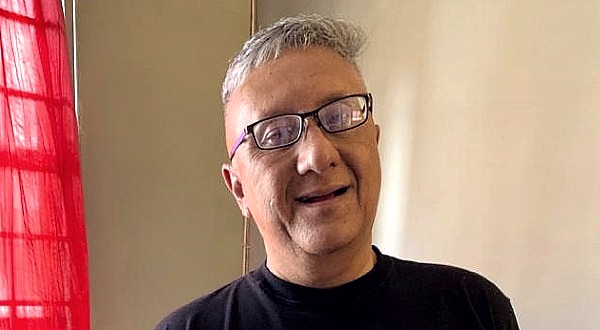
Press freedom group Geramm’s response to Datuk Zahidi Zainul Abidin for his remarks on a Bernama Mandarin news presenter is a gem.
I bet the Deputy Minister of Communications and Multimedia did not expect such a response.
If indeed Zahidi was being sarcastic in commenting on pay cuts and Bernama TV internal issues raised by news presenter Sydney Yap, what he got from Geramm was, well, equally sarcastic.
In defending Bernama, the deputy minister said his ministry would not take action against Yap but might want to “check her health,” going on to say the presenter might be experiencing “tension, was mentally ill or had fought with anyone.”
That, to me, is uncalled for and in bad taste, particularly the term “mentally ill” is “sakit otak” when said in Malay.
And Geramm rightly reacted saying dealing with nonsensical statements is among the causes for stress for media practitioners, leading to the point of “mental illness” or “sakit otak”.
If I may add, Zahidi’s remarks fit the nonsensical statement narrative perfectly.
And “nonsensical statements” are also made in the past by Zahidi’s colleagues i.e. ministers and deputy ministers. I’ll not go into specifics.
Suffice to say, the statements in question range from bizarre, absurd to comical which can make even our best stand-up comedians turn green with envy.
I agree with Geramm mental health should not be used as fodder for jokes.
I wonder if “joke” is the right word to use because health condition is no funny matter. What more mental health!
Center for Independent Journalists executive director Wathshlah Naidu is spot on to say that a deputy minister should not make such “frivolous, insensitive and potentially defamatory” comments against an individual. What more when that individual had in good faith raised issues concerning employment and labor rights.
Therefore, instead of trying to be funny (which he is not), it would be befitting of a deputy minister in charge of Bernama to take a hard look at what Yap had said and get to the bottom of the problem.
Statements made by Zahidi and his colleagues, now or in the past, range from bizarre, absurd, to comical which can make even our best stand-up comedians turn green with envy.
A peek at the pay slips would easily reveal if there were pay cuts and what not as alleged by the outgoing news presenter. And a look at the duty roster of the Mandarin TV news team would enable Zahidi to know just how many personnel are there producing 30-minute bulletin Mondays to Fridays. Better still pay a visit to the Bernama TV news room unannounced.
According to Yap, only three personnel remained carrying out the task of putting out Mandarin TV news bulletins. If what she said is true, then the situation is grim and grave.
To demand a three-man team to put the news on air five days a week, week in and week out, is ridiculous, to say the very least.
Zahidi then ought to take all his findings to his boss, the communications and multimedia minister who in turn should bring it up to the cabinet for a final decision.
What is the government’s plan for Bernama Mandarin TV news? Is there a plan in the first place?
The big question is, just what the government intends to do with Bernama TV Mandarin news? Continue with it or pull the curtain down?
If the decision is to continue, then be serious about it. Pardon me if I sound preachy.
Weaknesses and shortcomings must be ironed out. Loop, or should it be gaping holes, must be plugged. Manpower shortage must be overcome. Only then will the Bernama Mandarin TV news unit be on the proper platform to relaunch, so to speak.
If it is felt it’s the end of the road for Bernama Mandarin TV news, then let the remaining personnel be informed fast and quick. Bernama, or rather the government, owes that to them. A final decision fast on a “wrap up” would go a long way to help them chart out their next course of journey. Pay them their dues and let them be on their way.
To leave them “hanging” in a lurch and not knowing what to expect, like how they are feeling now, is not right.
But ending the Bernama Mandarin TV news would send signals or messages that the government is no more interested in giving to the Chinese audience its side of the story.
If I am not wrong, the dissemination of government messages was the objective for setting up the Mandarin TV news unit.
If it’s curtains down, is the government saying it has given up trying to reach out to the Chinese community? Or is money the big problem in continuing with the Bernama Mandarin TV news?
I’ll end by recalling my experience when I was the editor-in-chief of the news and current affairs department at Media Prima owned ntv7. We were producing news bulletins daily in Bahasa Malaysia, English and Mandarin.
Even when the other stations under the Media Prima stable were suffering because their programs were not bringing in the money, the Mandarin news at ntv7 and 8TV continued to be good and stable revenue earners.
To the marketing and brand people back then, Mandarin programs were easy to monetize.
I believe the situation is the same today, in spite of the new norms and economic woes.
(Mohsin Abdullah is a veteran journalist and now a freelancer who writes about this, that and everything else.)
ADVERTISEMENT
ADVERTISEMENT






































